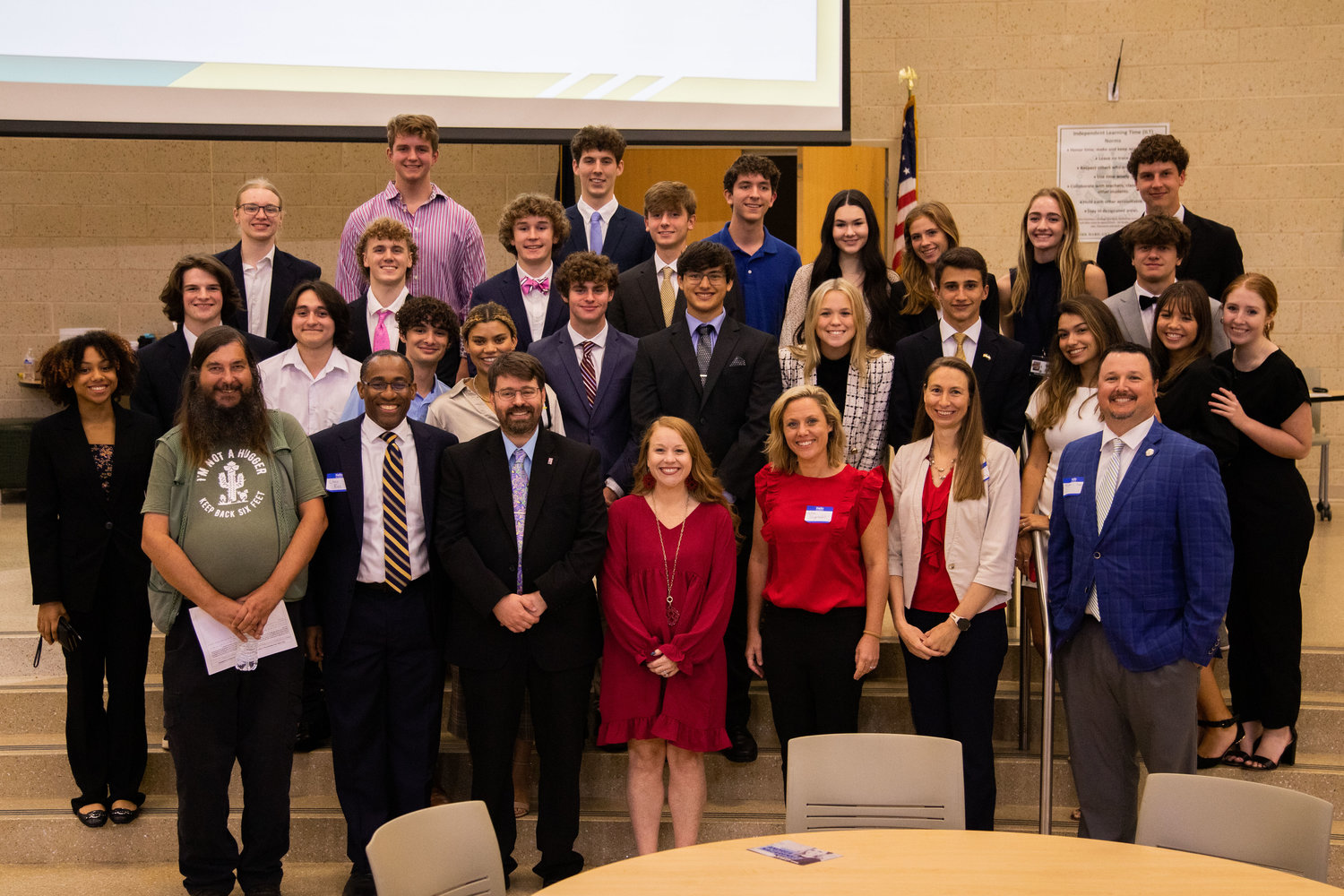Lexington District 1 School Board Candidates Answer Student Questions at Forum
Questions were written by students in River Bluff High School's Center for Law and Global Policy Development.
This item is available in full to subscribers.
Subscribe to continue reading. Already a subscriber? Sign in
Get 50% of all subscriptions for a limited time. Subscribe today.
Please log in to continueNeed an account?
|
Lexington District 1 School Board Candidates Answer Student Questions at Forum
Seven candidates for three at-large seats on the Lexington County School District 1 Board of Trustees gathered Oct. 27 to answer questions at a World Cafe-style forum.
Beyond the format – which found candidates rotating through tables to talk directly to small groups of attendees – the event at River Bluff High School’s River Cafe was set apart from the two previous forums for Lexington 1 school board candidates by the origin of its questions, which were written by students in the school’s Center for Law and Global Policy Development.
Though all 11 candidates running in the Nov. 8 election were initially reported to be attending, Kaite McCown, Richard Gehling, Mary Price and Harriet Coker weren’t present. The three incumbents on the board aren’t running to retain their seats.
With five rounds, the tables didn’t get to sit with all seven candidates, but attendees were able to interact with all of them in a subsequent 30-minute meet-and-greet.
At the beginning of each round, students Larissa Cahrillo and Jack Flanagan asked a question, with candidates getting 30 seconds to reflect before the eight-minute round started. The first three minutes consisted of the candidate sharing their answer, with the next five minutes allotted to attendees to ask the candidate other questions. At the beginning of the next round, the candidates shared a one-minute summary of what they spoke about in the previous round.
Rhys Sage spoke about two major issues regarding teacher recruitment and retention: morale and pay. He said low morale is in response to bad management, adding that teachers currently feel disposable.
Andrea Nazarenko hit the point of not micromanaging teachers during her summary.
“We should hire good teachers and we have good quality assurance processes in place, then we should honor and respect what the teachers are doing,” she said.
When speaking on the topic of budgeting, she said she supports increasing teacher salaries to a reasonable wage, but added that the district is limited by its budget. Nazarenko also said she wants to ensure that all programs necessary for the district to stay up and running are being funded, and if there is not enough funding for this then every program should take an equal hit, with no program receiving favoritism.
Chris Rice said the district needs to get an auditor, positing the district must have checks and balances to avoid overstepping financial boundaries.
His answer to a question about racial and gender minority groups was to keep an open mind and have a learning posture. When the Chronicle asked about how he would handle transgender students with sports and bathrooms, he mentioned accommodations.
“We have to make certain accommodations. We make accommodations academically with 504 plans and IEP plans, why can't we make accommodations athletic-wise for that student?” Rice said.
A first-level student in the River Bluff center’s law program shared a personal experience regarding transgender students at River Bluff and asked Rice if he plans to try to bridge the gap between transgender students and the rest of the student body. In response, Rice said friendship cannot be legislated, and that if it happens it has to happen organically.
Speaking about gender minorities, Aaron Granade said the district needs to stay out of students’ sexual orientations and preferences, adding it’s “dangerous” for schools to go there.
Round four focused on safety and mental health, with Granade mentioned schools getting steel-reinforced doors and bars over doors. Granade said this would bring up questions about fire safety and would need to be an issue that is addressed, indicating he was speaking from a personal experience.
When it came to student mental health, Granade said it is a personal matter between the child and their families, adding the school should have a very limited role in the issues.
When the Chronicle asked him about students who have a bad home life and do not have that kind of resource he responded, “What about children who are in a wheelchair? Do we put everyone in a wheelchair? It’s just kind of the way it is”
Speaking to student mental health, Nicholas Pizzuti said it’s all about accountability and making sure children and everyone involved with their education are held accountable.
During the last round, candidates were asked about communication. Pizzuti mentioned that communication is a top priority in his campaign. He told the guests that there are going to be moments when board members do not agree, but they are going to have to agree to disagree.
One of his key points was that every school needs to be heard regardless of its size and location.
In her last summary of the night, which wasn't followed by another round, Beth Shealy said the current board meetings are not a welcoming place. She brought up questions:
“How do we get more people involved? How do we make it more welcoming? How do we get students involved?”
During the meet-and-greet portion, Homesley told the Chronicle that she wants students to be able to receive the highest academic achievement possible since they are the future of the community. She made claims about the district taking money out of its general fund balance to pay for teachers, which the Chronicle hasn’t been able to verify.
Keywords
lexington county school district 1, november election, south carolina educationOther items that may interest you







Comments
No comments on this item Please log in to comment by clicking here